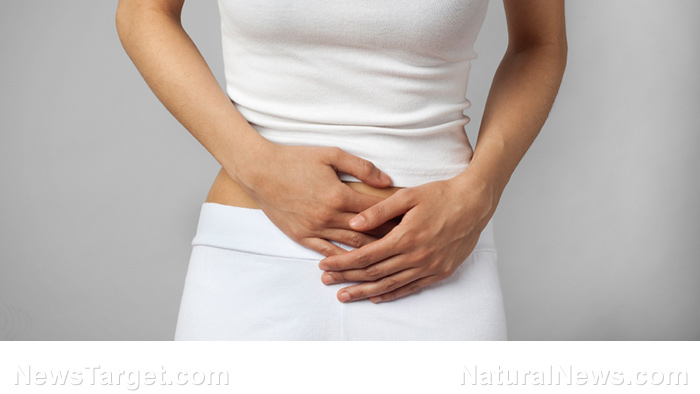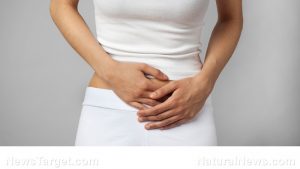
Pelvic inflammatory disease – causes, side effects and treatments at NaturalPedia.com
Wednesday, May 30, 2018 by Janine Acero
http://www.naturalpedia.com/pelvic-inflammatory-disease-causes-side-effects-and-treatments-at-naturalpedia-com.html

Pelvic inflammatory disease (PID) refers to the inflammation of the female reproductive tract (Fallopian tubes and ovaries) that occurs especially as a result of a sexually transmitted disease (STD). PID is a leading cause of infertility in women.
PID is a serious infection of the female reproductive system. It can develop from an untreated STD; it commonly occurs when bacteria from the STD in the vagina or cervix move into the uterus and upper genital tract.
The most common organisms that cause PID are gonorrhea and chlamydia, both of which are highly contagious STDs.
Untreated PID can damage the Fallopian tubes, ovaries, and uterus, which can seriously damage the reproductive system and lead to chronic pelvic pain. PID is the most common, preventable cause of infertility in women, and can also lead to ectopic pregnancies.

Known symptoms, risk factors for pelvic inflammatory disease
Symptoms of PID may include:
- Abnormal vaginal discharge with foul odor
- Back pain
- Diarrhea
- Fatigue
- Fever or chills
- Irregular menstruation
- Nausea and vomiting
- Pain during sex
- Pain during urination or more frequent urination
- Pain in the upper and lower abdomen
Some women with PID experience severe symptoms, such as:
- Sharp pain in the abdomen
- Vomiting
- Fainting
- A high fever (greater than 101 F)
Having an existing case of gonorrhea or chlamydia increases your risk of developing PID. However, you can still develop PID without ever having an STD. Other risk factors for PID include:
- Douching
- Having a history of PID
- Having sex under the age of 25
- Having sex with different people
- Having unprotected sex
- Using an intrauterine device to prevent a pregnancy
Body systems harmed by pelvic inflammatory disease
PID can spread to other parts of the reproductive organs if left untreated. It may also lead to long-term reproductive problems, such as:
- Scarring in the ovaries, fallopian tubes, and uterus. Widespread scarring may lead to chronic pelvic pain and infertility.
- Ectopic pregnancy. If the patient does get pregnant, scarring of the fallopian tubes due to PID may cause the fertilized egg to implant in one of the tubes rather than in the uterus. An untreated ectopic pregnancy could cause the fallopian tube to burst suddenly, which might lead to profuse bleeding.
- Tubo-ovarian abscess (TOA). A TOA is a collection of bacteria, pus, and fluid that occurs in the ovary and fallopian tube. A woman with a TOA often looks sick and has a fever and pain that makes it difficult to walk. Treatment includes antibiotics and surgical removal of the abscess.
Food items or nutrients that may prevent pelvic inflammatory disease
Reduce inflammation and support overall reproductive health by adding more of the following into your diet:
- Calcium (milk and dairy products) and antioxidants from various plant sources (blueberries, cherries, tomatoes, squash, bell pepper, spinach and kale, broccoli, beans, almonds, etc). You can also rely on plant sources for calcium, especially if you’re lactose intolerant or have milk allergies.
- Vitamins C and E, selenium, and carotenoids (beta-carotene, lycopene, lutein, zeaxanthin, etc.) from a wide variety of fruit and vegetable sources.
- Omega-3 fatty acids from flaxseeds, chia seeds, salmon, sardines, beef, walnuts, tofu, etc.
- Probiotics to help maintain your gastrointestinal health and immune system.
Treatments, management plans for pelvic inflammatory disease
PID can be treated with antibiotics. However, if damage has already occurred in the reproductive organs, antibiotics will not be able to reverse it, but it will stop further spread of the infection. Women/girls with severe cases of PID do have to be hospitalized, particularly if they develop a high fever, severe nausea, and vomiting; if they need intravenous antibiotics; if they are pregnant; or if the diagnosis is uncertain.
There are also home remedies available, such as baking soda and pelvic massage, that may help manage PID symptoms.
Where to learn more
- Having chlamydia DOUBLES women’s risk of developing ovarian cancer, study finds
- Black seed oil: Have you heard of this historical holistic remedy that can fight STDs naturally?
- 4 Herbal Remedies for Home Use
- Factors behind the growing infertility epidemic affecting millions of Americans
- 11 Symptoms That Can Be A Sign of Cancer
Summary
Pelvic inflammatory disease (PID) is the condition wherein the female reproductive tract (Fallopian tubes and ovaries) becomes inflamed due to an STD.
PID is a leading cause of infertility in women.
Sources include:
Tagged Under: Tags: pelvic inflammatory disease





